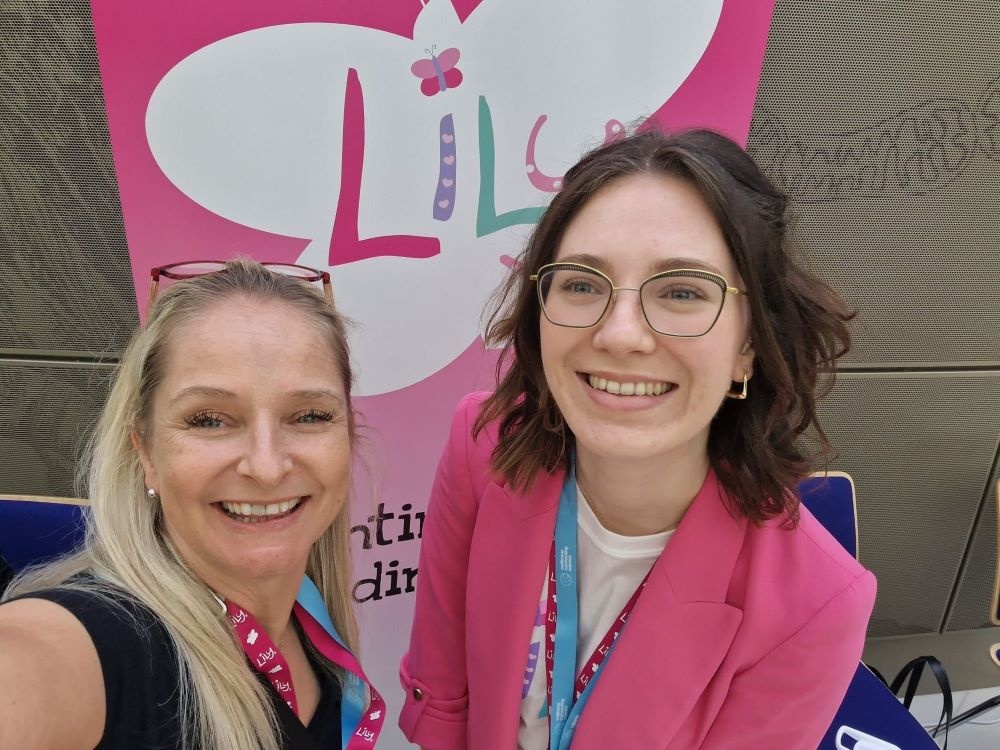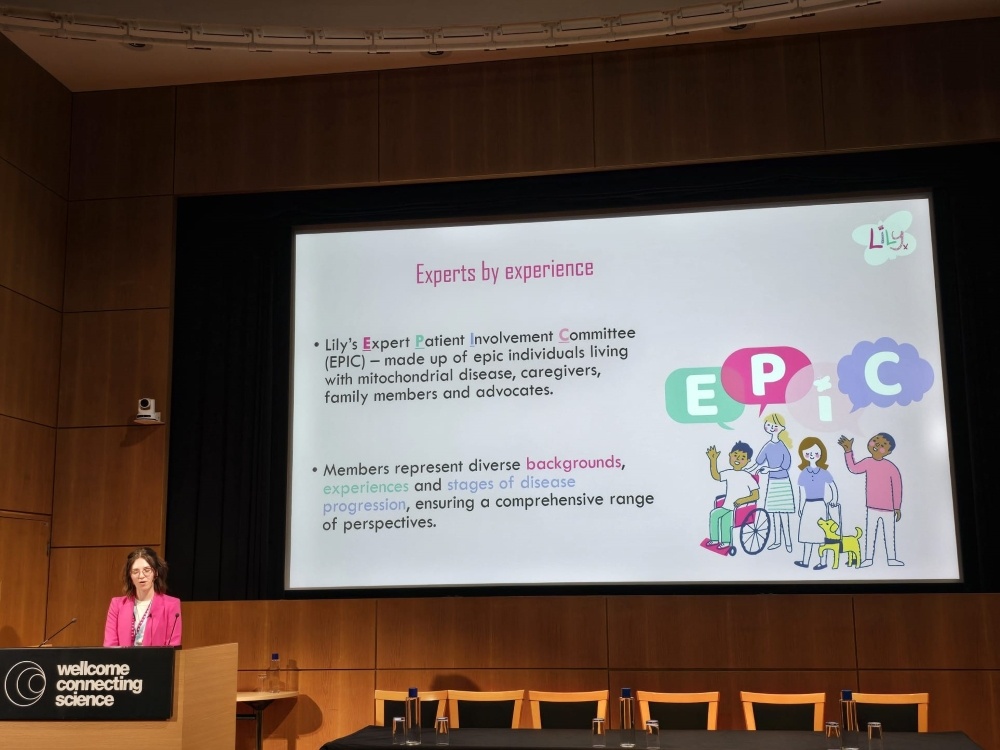The conference took place at the Wellcome Genome Campus in Cambridgeshire over three glorious days, with bunnies frolicking in the warm spring sunshine each morning as Research Manager Maria and Alison, Head of Research & Innovation, made their way to the venue.
With a mix of academics, researchers and representatives from the pharmaceutical industry in attendance, the conference aims to bring together experts in mitochondrial medicine from around the world to focus on developing a greater understanding of mitochondrial diseases and the search for treatments.
Notable keynote speakers included Cambridge Professors Rita Horvath and Patrick Chinnery and Newcastle’s Professor Rob Taylor. And our very own Maria had the opportunity to speak to the hundreds of delegates present about our Expert Patient Input Committee, or EPIC for short, which we launched earlier this year, a project spearheaded by Katie, our Patient Engagement & Advocacy Manager.
“Nothing about me, without me”
Maria began by explaining how everything we do at The Lily Foundation is guided by our patients, and how we feel a responsibility to advocate for them and ensure their voices are heard. We believe wholeheartedly in the democratic principle of “Nothing about me, without me”, and strive to ensure that research is conducted with the intention of benefitting patients.
She then highlighted why putting patient concerns at the top of any research agenda can make a difference to its impact. She discussed how involving patients can help to overcome many of the challenges often faced in rare disease research – challenges like limited funding, lack of awareness and rarity of condition.
Involving patients from the outset of a project could, for example, influence its direction and goals; it could also enhance a project’s significance and impact by ensuring it focuses on the needs and concerns of real patients rather than an ‘assumed’ aim.
That led Maria to introduce EPIC and explain how members of this virtual committee are all patients, caregivers and family members who are keen to share their lived experiences of mitochondrial disease to help inform research and clinical care.
Through a series of slides she highlighted how these lived experiences of mitochondrial disease patients can benefit – and be easily incorporated into – research. It’s a symbiotic relationship where patients are able to contribute their insights, experiences and expertise, while researchers can use those insights to better shape and influence the design of their research studies.
Getting involved to help shape the future
With Katie’s direction, members of EPIC can take part in a range of projects from participating in focus groups and providing input on patient information sheets to completing patient surveys about what it’s like to actually live with mitochondrial disease.
Since its launch in January, EPIC has already involved nearly 30 patients in shaping research agendas, influencing policy decisions and improving support services for those affected by mitochondrial disorders. Topics have included the importance of obtaining a genetic diagnosis and the design of gene therapy trials, with further projects lined up for later in the year.
Researchers who have taken part are more informed about how best to approach a project, while patients are being kept up to date with the latest developments in mitochondrial research. And feedback from both sides has been really encouraging.
One adult mitochondrial disease patient said it was “a really great step that researchers are engaging with those affected by mitochondrial disease at such an early stage in their trial”, while Dr Will Macken, Academic Clinical Lecturer at UCL, commented that “any researcher would feel grateful to have the EPIC resource”.
EPIC is a forum that both researchers and those affected by mitochondrial disease can readily access. This conference was the ideal platform for Maria to introduce the concept to those involved in the field of mitochondrial research, and will hopefully lead to new opportunities for collaboration with us.


